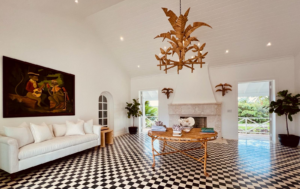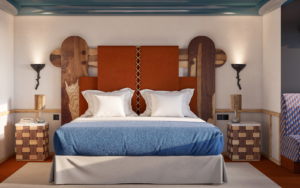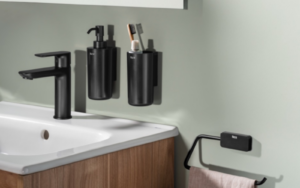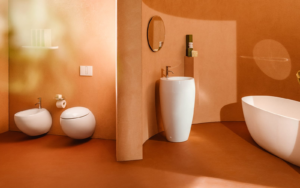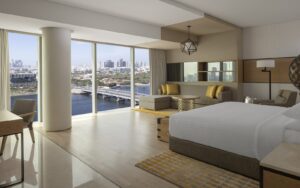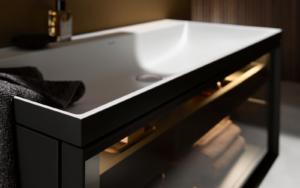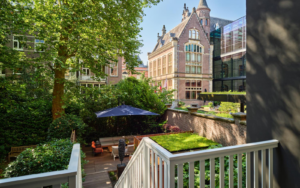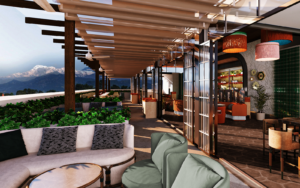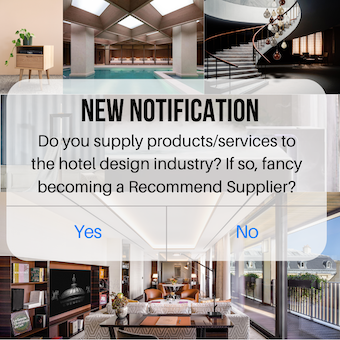We have come so far from the time when the choice is hotels was Italian or steakhouse. Today, destination restaurants and Michelin star chefs are sheltered inside some of the world’s most premium luxury hotels. But what’s next on the menu for Food and Beverage design in hotels? Alexandre Santamaria, Founder, Aware Hospitality, has a few thoughts…
If we take a look back a few decades, the travelling experience was centered more on the destination rather than any experience you would have in a hotel, including the food and beverage offerings. With the wants and needs of consumer preferences changing, largely due to the pandemic, the future of food and beverage design in hotels is now championing locality, sustainability and on-property culinary experiences.
In the past, hotels were almost complacent in the area of food and beverage, but we’re now seeing a steady rise in hotels partnering with local F&B operators to ensure higher levels of quality. For instance, Me London outsources all food and beverage to The ONE Group (a global hospitality company that develops and operates upscale and polished casual, high-energy restaurants and lounges), and The Hoxton Hotel outsources to Soho House, a brand which undeniably shares the same aesthetic and style. Soon-to-be-open Raffles London at The OWO will feature three signature dining experiences from Michelin-star Chef Mauro Colagreco alongside three destination bars.
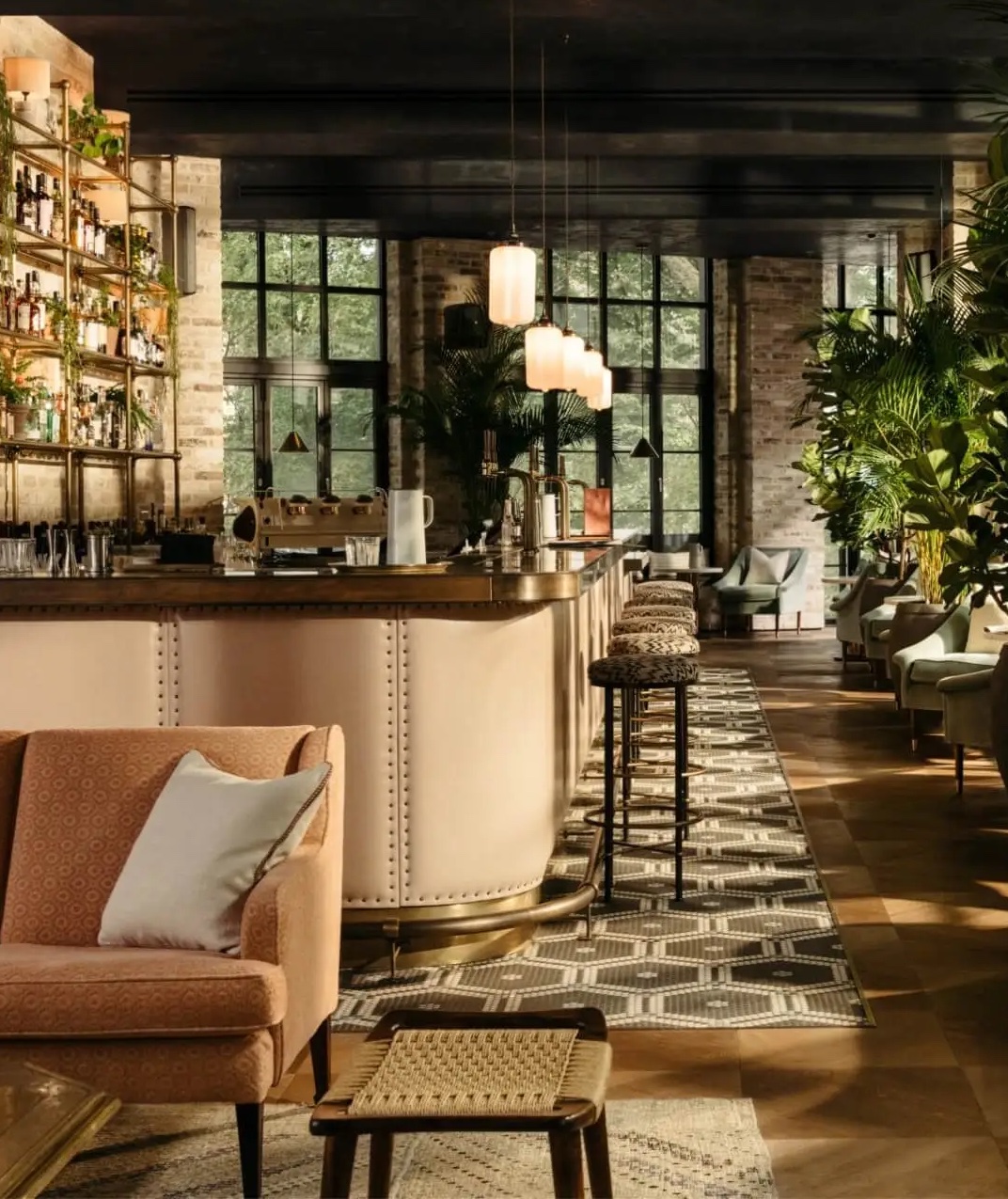
Image credit: Hoxton Southwark
Meanwhile, over in Dubai, newly open Hilton Dubai Palm Jumeirah, an expansive beachfront property, has outsourced several of its drinking and dining experiences to London-based bar, Trader Vic’s. The London institution, which first opened in the capital in 1963, has brought its tiki brand to the Middle East, while Irish pub McGettigan’s is also housed within the hotel. Under this model, the hotel pays for fit-outs and equipment and partners with a passionate and hard-working restaurateur with all the tools to realise their vision.
As well as being financial savvy for hotels, it’s also in the company’s interests to completely outsource food and beverage outlets to independent restauranteurs as the market is becoming more and more competitive when it comes to dining options, and brings a uniqueness to the menu as well as offering guests a reliable food service from a brand they resonate with.
A successful restaurant concept is based on building a family of regular customers; from frequent business travellers to members of the local community. Often, a hotel houses one all-day, middle-of-the-road concept for the hotel clientele to use for breakfast, lunch and dinner. However, when you have several F&B outlets all under one roof, as well as involving local ‘homegrown’ chefs, this goes a long way towards creating the buzz and excitement that restaurants need early on in their lifecycles to stay operational. Hotels are starting to put effort into developing a strong F&B offering where locals can work, relax, eat, and enjoy their city any time of year – making it a destination not just for tourists.
Hotels have long been synonymous with the beloved buffet found in large-scale restaurants. While the treasured self-serve travel perk hasn’t received the same love since its decline due to Covid-19, hotels now understand that large, charmless restaurants with very little atmosphere don’t work. Instead, hotels are ripping up the rulebook and turning their lobbies into vibrant community workspaces aimed both at travellers and locals.
London hotels in particular are becoming the new destinations for remote workers. With the pandemic changing the way businesses operate, remote working has seen a steady increase with no signs of stopping. Earlier this year, the Office of National Statistics revealed the proportion of workers utilising a hybrid model has risen from 13% in early February 2022 to 24 per cent in May 2022, while the percentage working exclusively from home has fallen from 22 per cent to 14 per cent in the same period.
While co-working spaces such as WeWork have seen a decline (arguably due to high costs), hotels in the capital have transformed into accessible remote working spaces, offering special packages as well as access to fast wi-fi, tea and coffee on tap, meals, and amenities. In today’s digitally driven and globalised world, work is no longer confined to the cubicle or restricted to the hours between nine and five, and now, hotel lobbies are fast becoming ad hoc meeting rooms, full-time offices or just somewhere to quickly bash out an email.
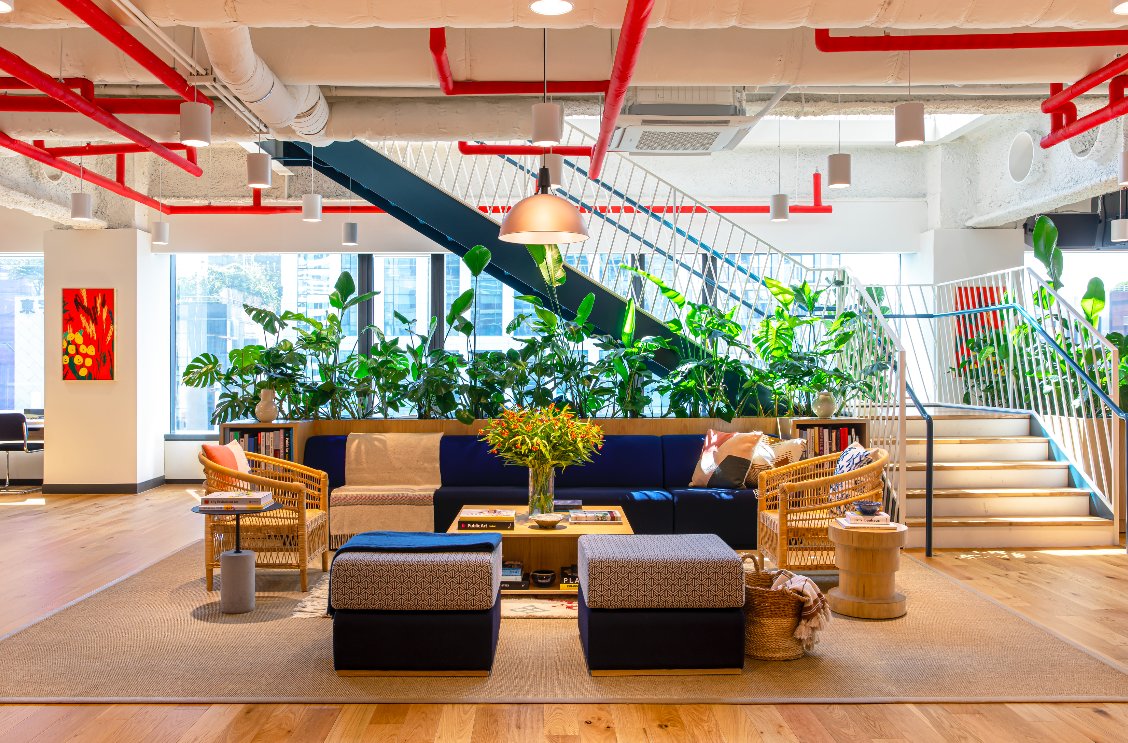
Image credit: WeWork
The Standard in King’s Cross boasts a meeting and events space on the eighth and ninth floors while the ground-floor lobby lounge offers a stylish co-working vibe. Over in Holborn, the Rosewood London hotel has a ‘Work From Hotel’ package where guests can book into suites that have been meticulously renovated into luxury office spaces. Mid-market hotels have also got in on the action, venues such as citizenM, which has four outposts in the capital, boasting super-fast free Wi-Fi, a contemporary living room, and iMacs for guests to use. And there’s no upfront cost to work there.
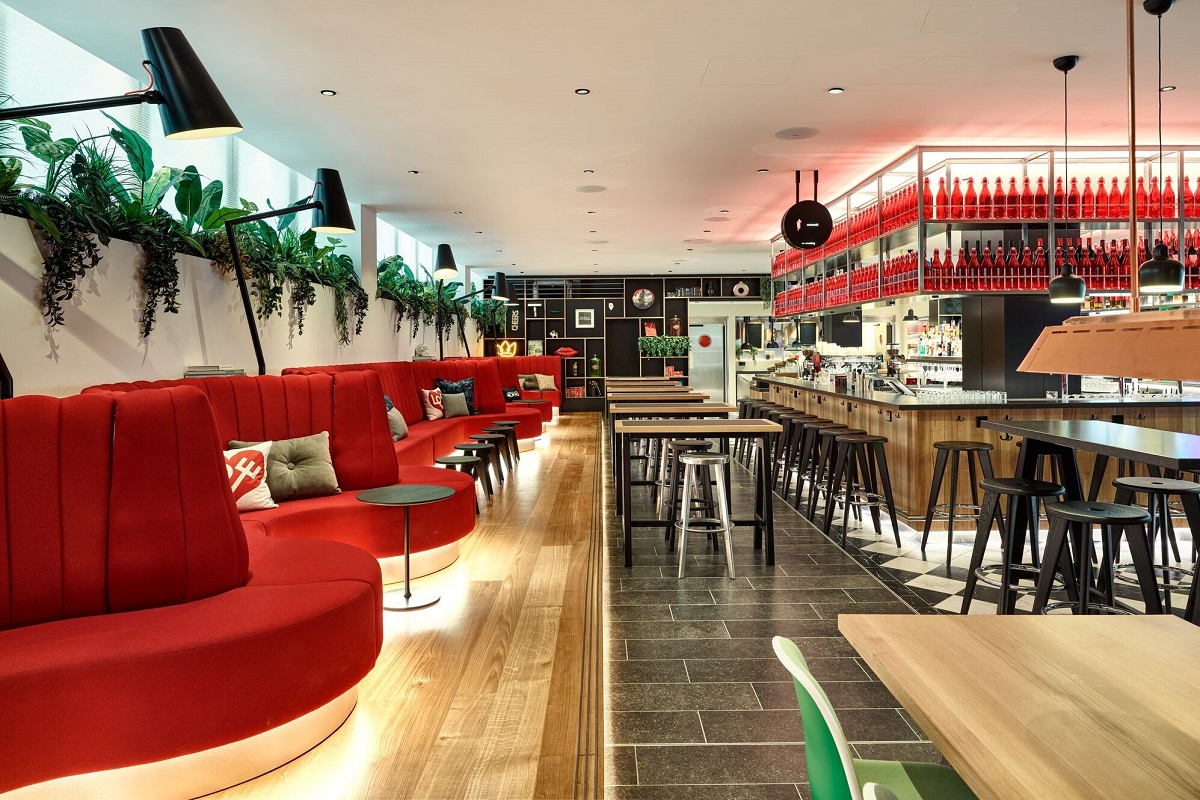
Image credit: citizenM
With guests having higher standards than ever, efficiency is now preferred over the personal touch. One of the main reasons the human factor is being removed is largely due to staff shortages following the Brexit fallout. Recently Office for National Statistics (ONS) figures said the hospitality sector currently has a record 174,000 jobs available. The joint survey revealed that the highest shortages are for front-of-house roles, with 81 per cent of operators looking to fill vacancies. Chefs are the next most sought after, with 76 per cent of operators with recruitment issues, followed by kitchen porters (67 per cent), and assistant managers (53 per cent).
If one thing is apparent, it’s that hotels are having to keep abreast of wider trends to stay ahead of the game. Adapting to the needs of the people – both locals and tourists – is vital, and is what keeps the best hotels at the top of their game. This naturally also extends into a hotel’s food and drink offerings, with pop-ups and regularly adapting kitchens taking away the stuffiness and clinical vibe and keeping things fresh and exciting. With so many changes happening in the last year alone, I’m excited to see what the future holds.
Main image credit: Unsplash


